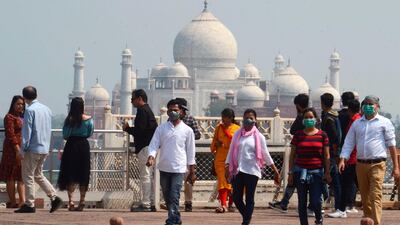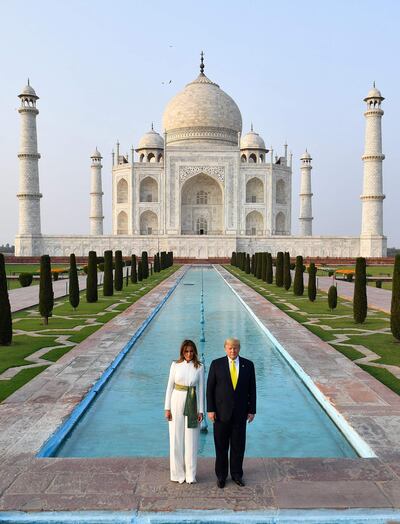Every day, around 37,000 people* visit India's most famous monument, the Taj Mahal in Agra: but for the next two weeks, at least, no visitors will be allowed. The Archaeological Survey of India has closed the Unesco World Heritage Site until the end of the month, in an effort to curb the spread of Covid-19.
This means that for the first time in the monument’s history, the annual Urs of Mughal Emperor Shah Janan will not take place at the Taj Mahal. "All ticketed monuments and all other museums have been directed to be closed until March 31," tourism minister Prahlad Patel tweeted on Monday, March 16.
The three-day Urs will not go ahead this year: the religious occasion is observed every year to commemorate the death of the Mughal emperor Shah Jahan, who ordered the construction of the monument in 1631 in memory of his wife Mumtaz Mahal.
This will be the first time in almost 400 years that it won't happen. It was scheduled to begin on March 21 and preparations were already well under way. According to historical records, the first Urs was held in the forecourt of the Taj Mahal in the year 1632, to honour Mumtaz Mahal (as construction of the monument wasn't yet complete).

Traditionally, during the three-day period, entry to the monument is free of charge, and visitors are able to see the original graves of Shah Jahan and Mumtaz Mahal, which are generally closed off to the public.
While the Taj Mahal is routinely closed during high-profile visits – most recently during President Donald Trump’s trip to the site on February 24 – this is the first time since the Indo-Pakistan war of 1971 that the monument will be closed for more than week.
Designated a UNESCO World Heritage site in 1983, the Taj Mahal receives about seven million tourists each year, with the number of domestic visitors capped at 40,000 per day.
Mumbai, a densely populated metropolis of 18 million, also authorised hospital and airport authorities to stamp the wrists of those who have been ordered to self-isolate with indelible ink reading "Home Quarantined" and displaying the date until which the person has been ordered to self-quarantine.
The moves, announced late on Monday, come just days after authorities in the city shut down schools, cinemas, malls, gyms and banned mass gatherings.
*This number is based on statistics released by the Archaeological Survey of India: according to the official body, 13.8 million people visited the monument in 2018



